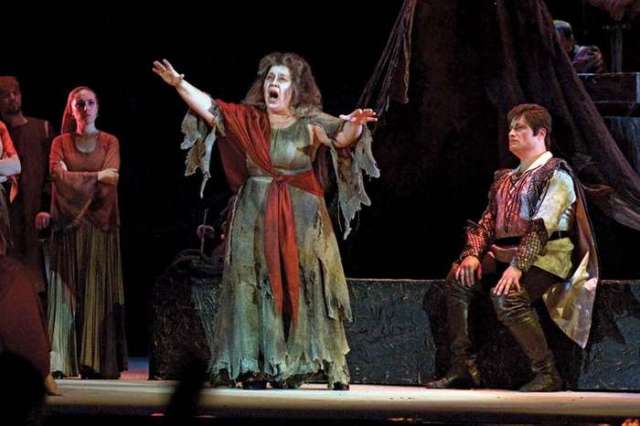Opera, a staged drama set to music in its entirety, made up of vocal pieces with instrumental accompaniment and usually with orchestral overtures and interludes. In some operas the music is continuous throughout an act; in others it is broken up into discrete pieces, or “numbers,” separated either by recitative (a dramatic type of singing that approaches speech) or by spoken dialogue. This article focuses on opera in the Western tradition.
The English word opera is an abbreviation of the Italian phrase opera in musica (“work in music”). It denotes a theatrical work consisting of a dramatic text, or libretto (“booklet”), that has been set to music and staged with scenery, costumes, and movement. Aside from solo, ensemble, and choral singers onstage and a group of instrumentalists playing offstage, the performers of opera since its inception have often included dancers. A complex, often costly variety of musico-dramatic entertainment, opera has attracted both supporters and detractors throughout its history and has sometimes been the target of intense criticism. Its detractors have viewed it as an artificial and irrational art form that defies dramatic verisimilitude. Supporters have seen it as more than the sum of its parts, with the music supporting and intensifying the lyrics and action to create a genre of greater emotional impact than either music or drama could achieve on its own. In his 1986 autobiography, stage and film director Franco Zeffirelli warned against taking opera too literally:
Short men in armour and large ladies in chiffon singing about ancient Egypt don’t make much sense at one level [but] they can…reveal to us the confusions of emotion and loyalty, the nature of power and pity, that could not be so movingly expressed in any other way.

